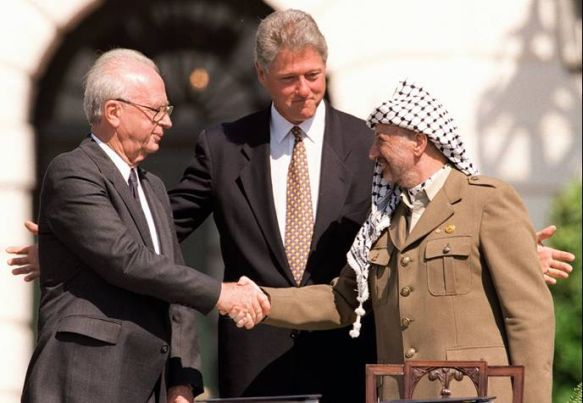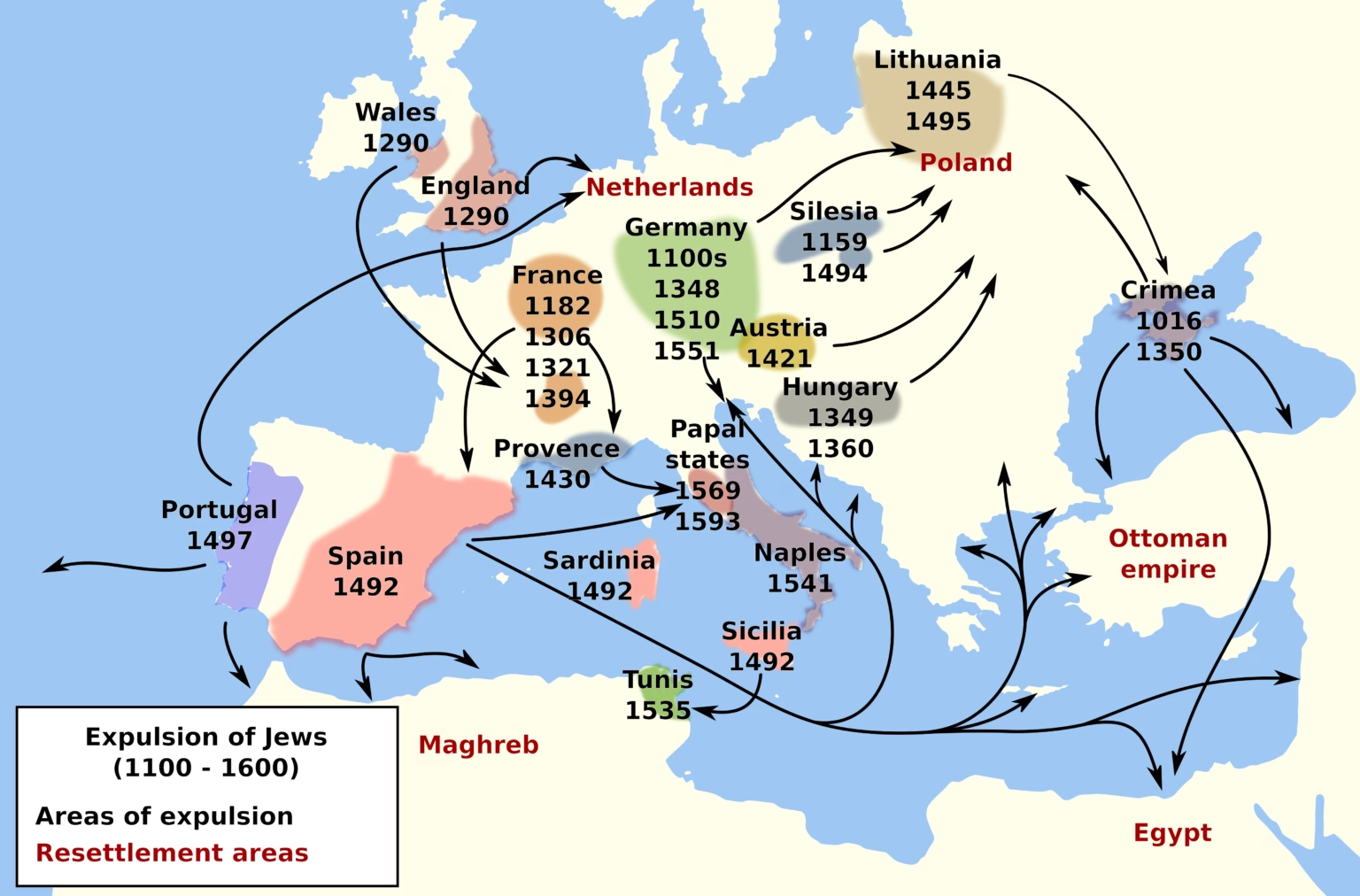Israel’s will for peace
No other country in the world has been subjected to as much pressure from the outside world, as Israel, to make peace with enemies who want to destroy the Jewish state.
And no other country in the Middle East has been so inclined to enter into peace agreements either.

On Radio Monte Carlo – a little over a week after the Oslo Accords between Yitzak Rabin and Yasser Arafat in August 1993 – Arafat claimed that the agreement was part of the PLO’s 1974 plan which had Israel’s annihilation as its goal. Photo: GPO
Since a succession of neighboring countries and terrorist organizations in their immediate neighborhood have historically attempted and/or expressed a desire to wipe out Israel, the Jewish state lives under a constant existential threat. Yet time and again Israel has shown its desire for peace with its neighbors and with organizations that have expressed their goal to eliminate it.
Israel accepted the UN partition plan of 1947 while the Arab world said “No”. The Arab League reiterated its categorical rejection of Israel’s right to exist in the September 1967 Khartoum Resolution which it adopted in the wake of the Six Day War. This resolution contained three unconditional ‘No’s: No to peace with Israel, No to negotiations with Israel and No to recognition of Israel.
After the Arab world initiated, or provoked, wars with Israel in 1948, 1956, 1967 and 1973, in 1979 Egypt was the first Arab state to recognize Israel diplomatically with a peace agreement between the two countries. This was followed by a peace agreement between Israel and Jordan in 1994. In the year 2020, relations were normalized with four more Arab states; United Arab Emirates, Bahrain, Morocco and Sudan.
PLO’s multi-stage plan
When the Palestine Liberation Organization (PLO) formulated its constitution in May 1964, the establishment of the State of Israel was declared as “entirely illegal” and the PLO viewed the entire former British Mandate of Palestine as the indivisible homeland of the Arab people.
The charter initially made no territorial claims to the West Bank or Gaza – which were occupied by Jordan and Egypt – but only to Israeli land. It was not until 1968, in the wake of the Six Day War, that the independent national identity of the Arab population was advanced.
In Cairo, June 1974, the PLO adopted a program calling for a national authority “over every part of Palestinian territory that is liberated” with a view to completing the liberation of the entire territory. A partial liberation by armed struggle did not exclude diplomatic compromises towards the goal of “completing the liberation of the entire Palestinian territory”.
Israel suspected that the PLO would exploit territorial compromises to improve its ability to attack Israel. Despite this, the Oslo Accords were signed, considered by Israeli critics to be a step in this strategy.
Oslo Accords and withdrawals
On November 27, 1996, the Israeli Foreign Ministry noted that Arafat, on Radio Monte Carlo a little over a week after the Oslo Accords were signed in August 1993, claimed that the Oslo Accords were part of the PLO’s 1974 plan aimed at Israel’s annihilation. In the television station ANB on May 7, 2009, PLO ambassador to Lebanon Abbas Zaki said that “the two-state solution will lead to the collapse” of Israel.
Political pressure on Israel and international contributions in the billions to the Palestinian Authority allowed Arafat, seven years after the Oslo Accords, to start the Al-Aqsa intifada (which lasted five years) and in March 2003 to be ranked by the business magazine Forbes as the sixth richest person in the world in the category “kings, queens and despots”. Arafat’s fortune was then estimated at 300 million dollars.
Israel has also shown willingness to cede land in exchange for peace. Sinai was handed over to Egypt in 1982 and Israel withdrew from southern Lebanon in 2000 after forcing the PLO to leave the area in 1982. This withdrawal led instead to Iran-backed Hezbollah launching terror and missile attacks on Israel from the region. In 2005, Jewish settlements in Gaza were dismantled and the Israeli troops left, which in June 2007 led to the terrorist organization Hamas taking control of the Gaza Strip.
Added to this is the fact that Israel is the only country in the Middle East where Arab citizens have the right to vote.


